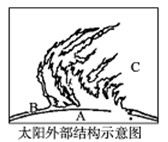问题
单项选择题
Corzine’s Downfall
The collapse this week of the broker-dealer MF Global and the due punishment of its chief executive Jon Corzine, who resigned Friday, have been and will be put to many political and rhetorical purposes. MF Global’s bankruptcy has been called, possibly, the first domino in a potential collapse of the European banking system; in this rendering, it’s a rough analog to the failure, in the spring of 2008, of Bear Srearns, which warned the chaos of autumn. It might well be cast as a stimulus for more government regulation, or smarter regulation; to some, it might even be a case study in overregulation. Every rationale for regulation seems to contain, as yang to its yin, an argument that regulation is actually to blame.
Corzine’s downfall is an update on Icarus, all illustration of arrogance. It reminds us that leverage kills, that it is dangerous to pick up nickels in front of a steamroller, that risk is risky, that pigs get fat while hogs get slaughtered. It complicates the Democrats’ hopes of controlling anti-Wall Street fervor in the Presidential election, because Corzine has been one of Barack Obama’s most generous supporters-a possible future Treasury Secretary. The Republicans will not soon let this one go.
It certainly further stains the reputation of Goldman Sachs. Corzine, a former C.E.O. of Goldman, took over a company partially owned by the firm of another ex-Goldmanite, Christopher Flowers, and managed, in a year and a half, to destroy it, in part while resisting oversight from a government regulator. That regulator comes from the Commodity Futures Trading Commission, whose chairman, Gary Gensle, is also a Goldman alumnus.
It further damages the perception, or myth, that a becoming-a-partner at Goldman Sachs indicates brilliance, or insures success or a lifetime inclusion in the vampire-squid-piracy, although you can find whisperings of a conspiracy theory that Goldman planted Corzine at MF Global in order to destroy it—a notion that is almost as deceiving as it is ridiculous.
Corzane’s collapse is also an occasion for taking-pleasure-in-others’-suffering. It is an occasion for those among Occupy Wall Street’s 99 per cent, who’d be ready to pitchfork him to pieces. It is also an occasion for the tiny cowering minority, who may resent Goldman for its perceived arrogance or cunning, or who may question the conceited folly and civic harm of Corzine’s spending over a hundred million of his own money to get elected to public office. The sentiment, among his peers, was that Corzine wasn’t so great a trader to begin with. And the sentiment was also that in the years since he had left Goldman, his skills, such as they were, had got rusty or outdated.
It is ironic that Corzine blundered by, and is being criticized for, among other things, betting too unbalancedly on Europe. That is, MF Global was banking on the hope that Portugal, Ireland, Italy, and Greece (whose bonds are collectively known as PIIGS) would not default on their debts by the end of the year. It might have turned out to be a good bet, were it not for the fact that it was made sneakily with money that was borrowed and perhaps even effectively stolen-or for the fact that he basically bet the firm, and the farm. Goldman Sachs, meanwhile, has been criticized, since the housing meltdown of 2008, for having profited from bets against the housing market—for shorting crappy derivatives based on mortgages. That was a good bet, except that Goldman made it while dumping those crappy derivatives on its unwitting clients.
According to the author, Corzine’s failure results from ______.
A. his intensive interest in political reforms
B. his wrong prediction on European debts
C. his definite refusal to official regulations
D. his retarded update of professional skills
答案
参考答案:B
解析: 本题答案位于最后一段,稍微浏览一下本段内容即可得出B答案。

